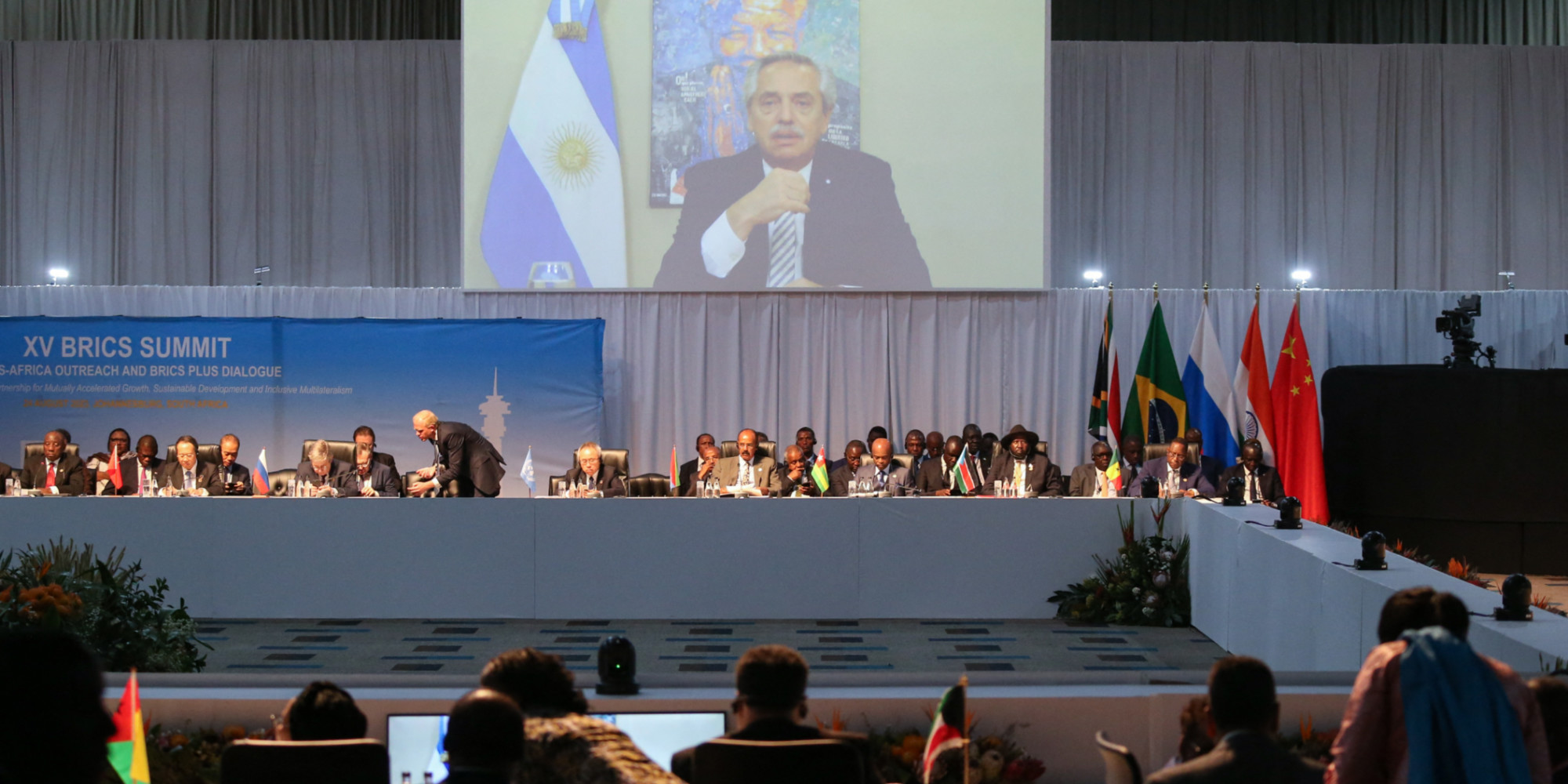Argentina, Egypt, Ethiopia, Saudi Arabia and the United Arab Emirates are also joining the group, which wants to gain influence in the world, announced South African President Cyril Ramaphosa. Chinese President Xi Jinping hailed “a historic enlargement” and predicted a “bright future for the Brics”. Economic heavyweight of the block, Beijing was favorable to this expansion, at the center of this 15th summit which opened on Tuesday and ends in the evening.
No information has filtered through on the content of the discussions, the support or the criteria used in the strategic choice of new entrants. The negotiations were conducted behind closed doors during a plenary session on Wednesday and during several bilateral meetings.
A welcome announcement
Around forty countries scattered around the world had applied for membership or expressed an interest. A sign of the growing influence of emerging countries on the world stage, according to the “club of five” which produces a quarter of the wealth and brings together 42% of the world’s population.
Immediately after the announcement, Tehran hailed on X (ex-Twitter) “a strategic success for the country’s foreign policy”. Ethiopian Prime Minister Abiy Ahmed spoke of “a highlight” for his country. “Ethiopia is ready to cooperate with all for an inclusive and prosperous world order,” he posted on social media.
The United Arab Emirates also congratulated themselves, President Mohammed bin Zayed claiming to “respect the vision of the leaders of the Brics”. Same thing for Egypt, which said it was eager to “make the voice of the countries of the South heard”. A heterogeneous alloy, the Brics have in common their demand for a more inclusive global balance, in particular with regard to the influence of the United States and the European Union.
Noting that “we are heading towards a multipolar world”, UN chief Antonio Guterres called for an overhaul of “outdated” multilateral institutions, which must reflect “today’s economic realities”.
What future dynamics?
Iran, which has no diplomatic relations with Washington, “is a controversial addition and no doubt linked to a request from Russia”, dependent on the Black Sea for trade, explains to AFP Gustavo de Carvalho, researcher in International Relations based in South Africa accredited to the summit.
Iran, Saudi Arabia and the United Arab Emirates “all have enormous economic weight and their oil preserves their interests”, notes Chris Landsberg, a specialist in foreign policy at the University of Johannesburg. Pretoria, which is campaigning for greater representation of Africa, won a round with the integration of two countries from the continent.
But overall, “there will be a lot to discover about the future momentum created by this expansion,” said de Carvalho. Observers say members of the bloc must balance proximity to Beijing and Moscow with the risk of drifting away from a major trading partner like Washington.
“The role and importance of the Brics in the world continues to grow”
The leaders of the bloc reaffirmed their “non-aligned” position in Johannesburg, at a time when divisions have been accentuated by the Ukrainian conflict. But Washington said this week that it does not see the Brics as future “geopolitical rivals”.
“The role and importance of the Brics in the world continue to grow,” said Vladimir Putin, under an international arrest warrant for war crimes in Ukraine and a major absentee from the summit, where he attended. expressed by videoconference.
Brazilian President Luiz Inacio Lula da Silva had openly pleaded on the sidelines of the summit for the integration of Argentina, criticizing the “asphyxiating” loans from international donors. Argentina is plagued by unprecedented inflation and struggling to repay a $44 billion debt to the IMF. “The Brics will continue to open up to new members,” said Lula, and “to be the driving force of a new international order”.
